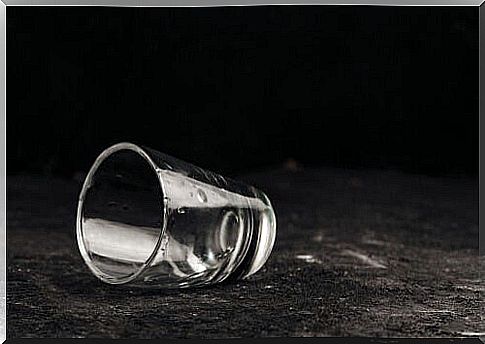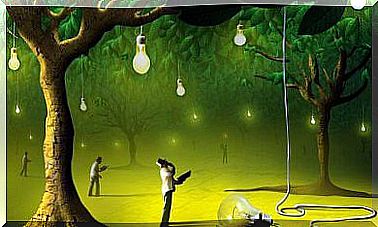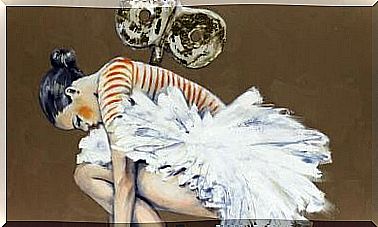Self-deception In Alcoholism

A few years ago, a fellow psychologist told me that she was not able to understand alcoholics. He did not understand that self-deception, that contempt for life because of a substance . Unfortunately, these types of “professionals” abound in addiction treatment. A moralistic and biased perspective incapable of providing attractive and dynamic alternatives that only deepen the feeling of incapacity and perpetuate a paralyzing guilt.
It must be understood that self-deception in alcoholism is one of the factors that intervenes in the continuity of the addiction and in the appearance of relapses. However, self-deception is not what causes addiction and in many cases it is the decisive factor that maintains it. Understanding this, we can unravel the self-deception in alcoholism to return a more rehabilitative vision of addicted behavior.
Alcoholism is increasingly considered by experts as a biopsychosocial disorder and taking into account its etiology and its evolution, it is impossible to ignore environmental factors. As we have pointed out, it is crucial to understanding self-deception and the perpetuation of the problem (Zucker and Williams, 1994).

Alcoholism as a treatment or avoidance of an aversive reality
People with an addiction can seem completely irrational and incomprehensible to others. With grief tinged with exasperation, nonaddicts wonder how a person can be so wrong and fail to see the pain he may be causing. How can self-deception in alcoholism be so destructive?
Gregory Bateson was the first to try to understand alcoholism through a complex epistemology. His essay entitled The Cybernetics of the Self: A Theory of Alcoholism views alcoholic behavior as a corrective experience.
If in a way it is the sober life of the alcoholic that prompts him to drink, we should not expect sobriety procedures to reduce or “control” his alcoholism.
The same environment that pushes you to addiction does not get you out of it
There are sober lifestyles that push to drink. Realities, discussions and memories that only ask to be anesthetized. There are normalities that contain an error, even a pathology for many people who are too sensitive before they end up being addicts. They do not find drunkenness in their own life, in their work or family. In its own existence.
The intoxication only brings a (subjective) correction of this existential error. In other words, for these people compared to their sobriety, intoxication is “good.”
For Luigi Cancrini (1993), alcoholism, like drug addiction, can be seen as a self-therapeutic attempt in the face of relational and family dynamics that are sources of suffering.
Once alcohol only destroys, how does self-deception work to keep drinking?
More contemporary treatments of self-deception have legitimately focused on Butler’s requirement of intentionality. When we are motivated to believe something, we tend to operate with a certain confirmation bias. We look for evidence to support our belief, and we tend not to give as much to what challenges it.
Many of the people who have an addiction do not think they have a problem. They only enter an intervention due to the push and force of the environment. In this case, people would go to therapy for others – because they do not suffer, because they do not see them suffer, because they do not endure the pressure they are subjected to every day – and not for themselves. In these cases, the person is likely to follow the intervention “facing the gallery.”
In addition, he can base his idea of absence of a problem by pointing out others in his circle of acquaintances who consume more than him and who have not yet experienced damage. It can also be an excuse to point out the fact that in the past you have stopped using when you wanted to.

Self-deception as a way of continuing to believe in yourself
As long as motivation remains dormant for a person, it will be very difficult to convince him of the falsehood of a belief. Instead, if a person can begin to understand what motivates them to hold certain beliefs and points of view, they acquire crucial knowledge.
Addiction is, in a sense, a habit. A habit that is done automatically without conscious intention. When we slow down habitual actions by asking why we are doing something, we withdraw from autopilot mode.
In conclusion, understanding self-deception and confirmation bias can provide common ground for people who want to understand how others may fall prey to their own addictions. Among these people, we must place ourselves psychology professionals in the foreground.









